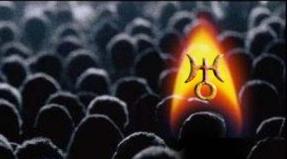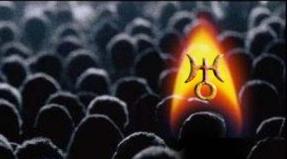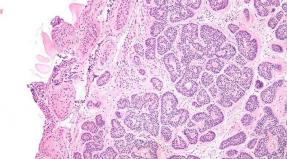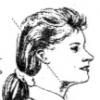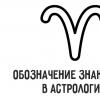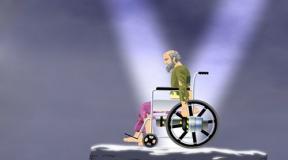Is the vascular dementia heal and how much do you live with such a diagnosis? What is vascular dementia and what is it dangerous? Spring exacerbation of vascular dementia
When the elderly, the memory is disturbed, the character will deteriorate and the hygienic habits change, it can be simply natural signs of aging organism. But only a medical specialist will help determine such a state. As soon as these changes have become noticeable, it is important to seek advice, as they can signal the disease that completely changes the life of not only the patient, but also people who surround it. If the diagnosis is made vascular dementia, the symptoms and the treatment of which close people should know to make an acceptable joint existence and be prepared for the consequences of the progression of the disease.
What is vascular dementia and its causes
Vascular dementia is characterized by a gradual psyche disorder and a decrease in the intellect, which leads to the patient's disadaptation in society. Illness is not able to work by profession, but in the future it loses the ability to self-service.
Among all cases of dementia in the world, the volume of vascular accounts for 15-20%, and it is considered the second prevalence after Alzheimer's disease. But in the post-Soviet space where cardiovascular diseases flourish, this type of dementia holds the palm of championship.
The main reasons that lead to the development of vascular dementia are:
- strokes due to the blockage of cerebral vessels atherosclerotic plaques or embols;
- intracerebral bleeding brain shells or impregnating brain tissue - often with arterial hypertension or angiopathy;
- multiple repetitive embolization of brain vessels in heart disease - arrhythmia, atrial mixing, endocarditis;
- vasculitis of various origin is autoimmune, infectious, nonspecific.
Vascular dementia: symptoms and treatment
In contrast to the degenerative type of dementia, when all the symptoms are developing gradually on increasing, signs of vascular dementia appear, as a rule, after the episode of the brain vascular disaster and progress "Step-like", with periods of stabilization of the process. After some short time after stroke, the following changes becomes noticeable:
- disorders of the emotional sphere - irritability, syradiability, fatigue, tendency to depression, sharp "moodings";
- weakening attention, reduction of the ability to concentrate, diffraction, progressive reduction in intelligence;
- forgetfulness, violation of memory for recent events, immersion in the past with the loss of recently acquired skills and habits;
- violation of speech - slowdown, "looping" on the same phrases;
- a breakdown - it becomes slow, unstable and "screaming";
- general-selling disorders - nausea, dizziness, headaches, faint;
- violation of urination - may appear in the early stages of the disease, in contrast to Alzheimer's disease, when this symptom is characteristic of the late period.
Important signs that dementia has vascular origin, the corresponding brain lesions are neurological disorders, to identify that can be identified using electroencephalography, computer or magnetic resonance tomography.
The treatment of vascular dementia is directed to
- elimination of the consequences of vascular disasters
- prevention of repeated disorders
- limitation of the lesion zone,
- maintain sufficient blood supply to cerebral tissue.
For this purpose, a complex of means that prevent thrombosis - antiagregants, drugs that improve the state of cerebral cells and neuroprotective means is used. Self-medication in this case is unacceptable.
Vascular dementia in older people
For older people characterized by more fast development Symptoms of the disease, since in most cases there is a source vascular pathology, and the concomitant diseases only aggravate the state. In severe cases, psychosis, delusional states, hallucinations may appear.
But with all the tragic position in which the patient and his environment turns out to be, vascular dementia very rarely reaches the total stage. Patients often retain household skills, common life attitudes, critical attitude towards themselves.
Progressive vascular dementia
The progression of vascular dementia depends on the pace of the disease, against which its development occurred. Timely and adequate treatment of heart disease, correction of lipid metabolic disorders, leading to atherosclerosis, normalization of blood sugar levels, the fight against obesity - measures capable of slowing down the deterioration of the state of the brain circulation, and therefore suspend the development of vascular dementia.
Diagnosis "Vascular dementia" - life expectancy
In contrast to the degenerative type of dementia, the life expectancy of patients with the vascular genesis of the disease is shorter, since the main disease does not give a chance to long-term. The cause of death of such patients is usually a heart attack or stroke, often repeated, as well as pneumonia.
Vascular dementia - acquired by a psychopathological syndrome, characterized by a persistent impaired of the patient's intellectual potential, manifested by a deterioration of the meal function and a pronounced decline in cognitive abilities. This disorder prevents the normal adaptation of a person in society, it makes it difficult for everyday life, deprives him of the possibility of performing professional duties, limits or makes it difficult to independently.
In contrast to other psychopathological disorders, with vascular dementia, any options for violation of consciousness are not identified - the level of personality consciousness remains unchanged. Very often, the dementia of the vascular genesis is accompanied by the appearance of a personal defect - a deep change in the fundamental characteristics of individuality, including personal abilities, manifestations of temperament, characteristics of character, and the focus of interests, the worldview as a whole.
Intelligent defect with vascular dementia is manifested by a combination of flaws in higher mental functions, in key disorders of short-term and long-term memory, inability to perform adequately coordinated actions, deterioration of perceptual categorization processes, violations of speech function, attention, thinking. A patient with vascular dementia deteriorates the ability to generalizations and abstract thinking, the possibility of planning is lost. He is not able to analyze and make independent decisions, does not lead his actions and cannot control the behavior.
In contrast to the congenital mental retardation - oligophrenia, intellectual defects with vascular dementia are acquired. The deterioration of cognitive abilities is a direct result of the vascular pathologies of the brain. The bloodstream brain-affected by various factors does not provide nervous tissues with enough oxygen and nutrients. For this reason, there is a gradual death of nervous cells - neurons, which leads to a global violation of the highest nervous activity of a person.
In the overwhelming majority of cases, the vascular dementia has a sudden beginning: the patient spontaneously occurs in one or more intellectual spheres. For this option, dementia is characterized by a steady progression of symptoms. In case of inspection, focal neurological defects are recorded.
It is worth noting that the quality of life of a person suffering from vascular dementia is significantly lower in comparison with the persons who have been established by a different kind of dementia. This can be explained by the presence in the structure of the disease of heavy motor anomalies and sensory disorders. On average, the life expectancy of patients with severe vascular dementia is no more than five years since the diagnosis is determined.
Vascular dementia: causes and mechanism of development
The reasons for vascular dementia there is a considerable amount. The main risk factor is a person's age: it has been established that a greater number of patients who have identiced this diagnosis, stepped over the sixty-year-old. The higher probability of formation of a vascular type dementia is present in man's people. By provoking the development of vascular pathologies is smoking. Most often, this type of dementia is determined by representatives of the Negroid and Asian race.
From the vascular dementia, people who have a low level of education, distinguished by low intelligence and workers in working professions suffer more often. At the same time, cognitive violations arise significantly less frequently in terms of intellectual work, since such people have large intellectual brain reserves. Low social activity, a shortage of full contacts, monotonous boring work, the lack of mental loads provide faster progress of symptoms of vascular dementia.
The reasons and provoking factors for the occurrence of vascular type dementia are:
- arterial hypertension - persistent rise of blood pressure;
- arterial hypotension- fixation of blood pressure levels below values \u200b\u200bcorresponding to the age norm for the patient but;
- hyperglycemia- a persistent increase in blood glucose content that caused sugar diabetes;
- lipid metabolism failurescausing an increase in blood cholesterol and leading to the development of atherosclerosis;
- sharp blood circulation failures in brain structures;
- coronary artery disease;
- disturbance of heart rhythm- Cleaning arrhythmia;
- congenital or acquired changes in heart structures.
Despite the diversity of provoking factors, doctors call the leading cause of vascular dementia is the persistent increase in blood pressure. Arterial hypertension causes abnormal defects in the walls blood vessels brain. The occurrence of microaromatosis - atherosclerotic lesion of arteriole, becomes the culprit of heavy pathological ischemic lesions - lacunar infarction. The formation of lipogalinosis - degenerative changes in the wall of small vessels of the brain causes a decrease in their elasticity. Due to the above abnormal processes, the physiological reactivity of blood vessels occurs. Remodeling of the vascular wall causes a structural decrease in the lumen of the vessels due to the thickening of their medial layer. As a result, blood circulation disorders arise in the structures of the brain, there is a loss of cerebral tissue, which causes a pronounced deterioration of the intellectual potential of a person.
Vascular Dementia: Symptoms
With vascular dementia, a quick start of development and burden of symptoms is possible: the emergence of intellectual activity disorders is observed within one month from the date of the undergoing acute violation of the cerebral circulation. For the multi-infarction type of acquired dementia, symptoms of disorder are born gradually: clinical signs Diseases become expressed after three months after a series of minor episodes of a local reduction in the blood supply of the brain.
In recent years, doctors record a large number of cases of vascular dementia, the start of which was not conjugaten with a cerebral ischemic stroke. The differentiation of "non-infarction" dementia from Dementia Alzheimerov type is of great importance in neurology, since incorrect diagnosis prevents the timely conduct of adequate treatment, which ultimately leads to the rapid progression of vascular defects. It is for this reason that, if you suspect the presence of a vascular dementia in a patient, it is advisable to conduct a detailed study with the help of modern neurovalization methods, in particular magnetic resonance tomography.
One of the options for acquired dementia is subcortical atherosclerotic encephalopathy, also called Binswanger's disease. For this disease is characteristic of atrophy white substance Brain, most often caused by arterial hypertension. For Binswanger's disease, symptoms are characterized by symptoms: the loss of memory, loss of inherent in the individual of cognitive abilities, rapid change in the emotional background. Typically, this type of vascular dementia is recorded in persons on the age segment from 55 to 65 years.
For vascular dementia, the clinical manifold of symptoms is characterized. In patients, a significant reduction in the speed of all the processes of the highest nervous activity is recorded. The patient's unpretentiousness is determined to changes in the action program in accordance with the new requirements of the surrounding world. All leaking mental processes are unstable.
In a person suffering from vascular dementia, severe symptoms of reducing cognitive abilities are observed. Suffer all types of memory. The memory of recent events is scattered. A person has difficulty reproducing any information if necessary. The patient with difficulty remembers words and visual information. He is lost the opportunity to acquire new motor skills.
Frequent symptom of vascular dementia - visual agnosia. Already in the early stages of the disease, a person cannot recognize persons around.
The focus of attention is worse. Man is experiencing significant difficulties in performing daily responsibilities. It is not able to conduct elementary hygienic procedures: clean your teeth, comb hair, shave. It's hard for him to dress yourself and go. It is difficult for him to cook myself. Violation of the ability to conduct counting operations leads to the fact that the patient has difficulty making purchases in the store. He cannot fill out financial documents.
A dangerous symptom of vascular dementia is a violation of orientation in space. It is difficult for man to navigate in the urban area: he does not know where it is, does not understand, in which direction he needs to move. As the disease burdens, disorientation occurs in time. Some patients cease to navigate their own personality.
A common symptom of acquired dementia - violations of speech function. The patient is hampered in the choice of words suitable for expressing his thoughts. He is not able to give the correct names to it to objects. In the statements of the subject there is a small number of nouns. Very often with vascular dementia an individual cannot understand meaning reading text. As the disease has been developed, the patient loses the possibility of speaking by one-piece meaningful and completed proposals. In his narratives there is no logical meaning and becomes noticeable to the improper use of grammatical structures.
More than 50% of patients with a diagnosis of vascular dementia are symptoms of emotional disorders. A person shows the weakness of beliefs, the fragility of spiritual interests and moral qualities. There is no hardness and determination in action. In some patients, violent involuntary crying occurs regularly, which does not correspond to the current situation and actually experienced emotions. Many patients suffering from vascular dementia are in a state of deep depression with pronounced melancholic symptoms. Often there are mood disorders. Psychotic symptoms can be observed - auditory, visual, tactile hallucinations, illusions - false beliefs that do not match the logical reasoning.
In addition to the signs of intellectual disorders, neurological symptoms are always recorded in vascular dementia, among which:
- pyramid insufficiency syndrome - disorders in the field of arbitrary movements (reduction of force in the limbs, deterioration of the ability to thin movements, increased muscle tone and reinforced tendon reflexes);
- hypercines of subcortical level - torsion dystonia, chorea (indiscriminate, ripple, irregular movements), athettos (slow tonic convulsion limbs, face, torso), ballestism (large-squeezed, sharp, shifter movements), Rulf intention;
- pseudobulbar syndrome - dysarthria (problems with pronunciation due to a violation of the innervation of the speech apparatus), dysphonia (loss of voice sounding with the preserved ability to speak in a whisper), dysphagia (dysfunction of the act of swallowing);
- cerebellum syndrome - coordination disorders;
- partare limbs - the weakness of the muscles of the legs;
- breach of gait;
- urinary incontinence;
- paroxysmal states - Short-term loss of consciousness, epileptic attacks, syncope (fainting, accompanied by a drop of muscle tone).
Vascular Dementia: Methods of treatment
The main step is to confirm the diagnosis of dementia and the identification of pathological conditions preceding the disease. Treatment of acquired dementia is aimed at eliminating pathology underlying cognitive violations. Medical efforts are focused on eliminating or correction of risk factors present in patient.
Since the main provocateur of vascular pathologies is arterial hypertension, treatment is directed to normalization of blood pressure. Inhibitors of an angiotensin glittering enzyme are most often used in combination with diuretic means. It is also advisable to include in the treatment regimen calcium antagonists and Blockers AT1 receptors acting on the renin angiotensin-aldosterone system.
To eliminate the likelihood of the repeat of cases of acute brain circulation, warning of other problems from the cardiovascular system, antitrombocutic agents are present in the treatment program. For elimination clear arrhythmia Most often use oral anticoagulants. If the patient abnormally elevated the level of lipids, it is advisable to receive beverages - medicines that reduce cholesterol production in the liver.
Since the leading symptoms of vascular dementia are enemic disorders and cognitive disorders, the basis for the treatment of the disease is preparations acting for improving intellectual functions. Medications of various groups are among those funds:
- preparations containing a ginkgo biloba leaf extract capable of reduce the tone of vessels and improve cerebral blood flow;
- anticholinesterase agents - substances that are inhibited by the activity of the enzyme splitting acetylcholine;
- medicines governing the synthesis of their own neurotrophic factors;
- nootropic drugs - neurometabolic stimulants that have a specific impact on the highest mental functions of the brain;
- neuropeptides - substances regulating various physiological functions organism;
- preparations with a membrane-stabilizing effect;
- NMDA antagonists - anesthetics inhibiting the effect of N-methyl-D-aspartate receptor;
- ascorbic acid, tocopherol, carotenoids, flavonoids that have an antioxidant effect;
- medicines having a gamma-aminobutyric acid;
- vasoactive means of selective action.
The presence in patients with vascular dementia of emotional, affective, psychotic symptoms may require the inclusion in the treatment program of the respective drugs.
- In the presence of depressive symptoms, the treatment of serotonin reverse seizure inhibitors is recommended. In addition to eliminating depressive disorders The use of antidepressants has a modulating effect on cholinergic functions.
- To eliminate psychomotor excitation, low doses of neuroleptics are used. As a rule, the reception of such funds occurs once in the evening.
- When anxiety and insomnia, it is recommended that small doses of benzodiazepine tranquilizers are recommended. However, treatment with such means requires high caution due to the existing risk of increasing memory disorders.
Medicia treatment Vascular dementia must be combined with systematic training and attention training. Regular exercises will help to compensate for an existing defect and improve the intellectual potential of the patient.
On average, in Europe and the United States, vascular dementia ranks second in the emergence of diseases of this type, but in the east, it is the first in the number of cases of diseases related to mental violations. Vascular dementia, what is it, and how does it differ from dementia or from Alzheimer's disease? What is her symptoms? Is it possible to prevent the disease?
Vascular dementia is mental disorderwhich combines several syndromes in itself, the common sign of them is the pathophysiological relationship of vascular brain disorders with the presence of cognitive violations in behavior. The patient has a decrease in the intellect and a violation of social adaptation (in need of self-service assistance, no longer capable of professional activities), but it does not observe a violation of consciousness. The manifestations of this disease are very diverse and depend on two factors:
- The nature of the pathological process
- Localization of the lesion
Reference!For vascular dementia is not characterized by congenital, in contrast to dementia, it is an acquired disease.
Responding to the question of what vascular dementia is, it is worth mentioning that with it the disorder of the complex of cognitive functions is manifested, suffer:
- attention
- memory
- thinking
- cognition
- praxis
- ability to make a decision planning
- control of own actions
Reference!Praxis - the ability of a person to perform in advance the well-studied integrated motor acts.
Classification of vascular dementia
The demention of vascular character is classified in two criteria:
On the etiological factor:
- Dementia resulting from a brain stroke
- Dementia, as a result of chronic ischemia
- Mixed Dementia (signs of the first and second)
By the nature of the localization of the pathological process
- Dementia subcortical vascular
- Dementia temporal part
- Lob's dementia
- Dementia of the middle brain
- Cerebral cortex
- Mixed Cork and Front Vascular Dementia
The following stages of development of the dementia of vascular genesis are distinguished:
- Predisposition
- Asymptomatic brain ischemia, in which there are no obvious signs of the disease, but it is possible to determine using MRI or CT.
- Primary manifestation
- Moderate severity of brain disorders
- Pronounced complex symptoms
- Heavy dementia
- Fatal outcome
Important! Vascular dementia in each patient has its own characteristics and develops at different speeds. In one case, the disease flows smoothly, the stages are very quickly replaced in the other. The duration of periods of exacerbation and remission is also individual.

Vascular dementia is characterized by a complex of symptoms, which vary depending on the stage and nature of the occurrence of the disease. Basic symptoms of vascular dementia:
- Depression
- Apathy
- Inadless speech
- Memory deterioration
- Epilepsy seizures
- Inhibition
- Detection of coordination of movements
- Difficulties in communication and social perception
- Changes in emotional reactions
- Slow mental activity
- Disorientation
- Complexity in the perception of information
The initial stage of vascular dementia is characterized by the presence of light symptoms, which is not easy to recognize, because even a healthy person sometimes notices episodic forgetfulness. For example, many were looking for a phone around the house, holding it at the same time in her hand. Or a person pours in coffee instead of sugar salt, or attempt to open the front door to the key from the mailbox.
Later, fixing amnesia is manifested, the essence of which is that the patient forgets, what he just spoke or what happened lately. It helps a lot of notepad and diary, looking at your own entries, it is easier to remember what it was, than by the words of others. Alzheimer's disease also begins.
Some character traits are exacerbated. For example, a person sometimes criticized friends. With exacerbation, he will in every way to mock the surrounding, without losing the slightest chance to specify anyone to an error, will become a real cynic and cosmot. Punctuality can turn into excessive pettyness, "creative mess" in the garbage, etc.
The ability to plan and execute plans is noticeably reduced, which is stimulated by forgetfulness. That is, it is trite to dine at 13:00, it becomes an impracticable task for a person.
Reference!Consciousness with vascular dementia initial stage Not broken.
The person worries on trifles, prone to depression, Handre, often crying, can avoid communication. Forgets dates, names of countries, cities, the names of public people. At home can take care of yourself, but needs support for loved ones.
For vascular dementia with acute principles, epilepsy seizures and violation of both short-term and long-term memory are characterized.

Central Stage
Over time, the memory deteriorates even more, some of the memories are replaced by fictional, nevertheless, episodes from childhood and other most distant people remember clearly and with even greater accuracy than healthy man. Fictional memories may seem like quite similar to reality and fantastic, devoid of any meaning.
There is a pseudoreminiscence - when the patient moves distant events from memory to date. So grandpa, which barely comes to the toilet, the sutra begins to quickly get ready to work or at the Institute. Often a person wants to go to the place where he was born and spent his childhood, to see old friends.
Coordination is strongly disturbed, the patient should not be released outside unattended, otherwise he can just get lost.
The person is no longer able to cope with household appliances: make yourself a dinner, wash, remove. It is still watching hygiene, but it becomes more and more sloppy, can spit on the floor, wipe snot with a sleeve, poke cleaning in your pocket and the like.
Interests go to the background, everything comes down to viewing TV series on TV and sowing previously studied songs.
The patient at the middle stage of vascular dementia requires care and supervision, otherwise it can be dangerous both for themselves and for others.
Heavy Stage
At the last stage, all the symptoms are dried. The person does not speak almost nothing and there is little on what he reacts, becomes drooling, violent. Degradation occurs physical functions: Lovely, can not move without third-party help. There is a complete collapse of the person - does not remember who he will not recognize close.
Dementia of vascular genesis arises due to ischemic or hemorrhagic brain damage caused by the primary pathology of cerebral vessels or some diseases of the cardiovascular system.

The most common factors that cause vascular dementia are:
- Ischemic stroke: is the main cause of the development of the disease, arises due to thrombosis - overlap the blood vessel with a blood bottle, which then ceases to feed the brain cells and they die. Also, stroke is possible in atherosclerosis of vessels. In 60% of cases, patients with retirement age after stroke develop vascular dementia.
- Hemorrhagic stroke: hemorrhage in the skull cavity, usually occurs as a result of a very high blood pressure.
- Chronic shape of brain ischemia in combination with bad habits, unbalanced diet, lack of physical exertion.
- Repeated embolization in the pathology of the heart.
- Cardiac insufficiency, heart defects.
- Autoimmune and infectious vasculitis: systemic diseases whose development leads to inflammation and destruction of vessels.
Attention! Disadvantage folic acid In the diet (parsley, salad, cabbage, cucumbers, beans) increases the chance of developing dementia to three times.
The risk group makes people suffering from: diabetes, arterial hypotension, peripheral vessel diseases, etc. The greatest risk of developing the disease in people over 60 and in smokers. Interestingly, men suffer from vascular dementia much more often than women.
To determine the diagnosis, psychodiagnostic studies are carried out, namely testing on the Khachinsky scales, Mini-Mental State Examination (MMSE).

The diagnosis of vascular dementia provides for the presence of three factors:
- The presence of dementia, which is determined by psychodiagnostic testing.
- The presence of a cerebrovascular disease determined by the doppler of the vessels of the brain, CT, MRI, ultrasound of the main vessels.
- Communication of the first and second factors.
Also, in the case of the presence of symptoms, conduct differential diagnosis For the presence of Alzheimer's disease.
The doctor conducts a diagnosis, determining the stage of the disease, and appoints a course of treatment.
Methods for the treatment of vascular dementia

Due to the fact that vascular dementia is not one specific disease, but a whole complex different symptomsA differentiated approach is applied to the patient. With dementia, cerebral vessels are affected, after which the cells of the brain are destroyed, medications attributed to the patient are directed to slow down the process.
Prevention is to prevent the development of a variety of vascular diseases, including those associated with the defeat of capillary networks. At the same time, it is used to restore blood pressure, ideally adjusted to a level of 120 per 80 mm Hg. Art.
To prevent brain defarks use medicines of the class of disagregantes - medicinal productswhich reduce platelet aggregation, thus suppressing the formation of thromboms.
In pathological changes in the heart, anticoagulants are used - preparations that depress blood coagulation activity.
The patient is attributed to calcium anthonists and peptidegic preparations to improve cognitive functions.
The course of treatment can be constantly varying depending on the state of the patient, so the doctor leads to a regular monitoring of the patient's reactions for treatment, its physical and mental state, it allows to achieve maximum efficiency.
Attention! Folk remedies are not the main medicine, but only go in addition to medicines.
How to treat vascular dementia folk remedies? At an early stage with the help of plants such as: ginseng, lemongrass, blueberries, nine root, you can improve the memory and absorb information.
These plants can be bought in a pharmacy in a dried form, they are used as a tincture on alcohol or decoction.

To combat insomnia with vascular dementia, tea with peppermint is used. The decoction with fennel and valerians are used for excessive excitability.
To prepare the healing bath for the patient, such plants are used:
- roshovnik's roots, yarrow, peppermint mint, Aira, Melissa;
- juniper branches;
- half grass;
- pine kidneys.
Prevention of vascular dementia
Vascular dementia is developing subsequently ischemic and hemorrhagic strokes, heart disease and blood diabetes. Therefore, while in the risk group, you should inspect the doctors of this profile, because the earlier the disease is determined, the easier it is to fight with it.
It is worth paying attention to healthy nutrition - So that the body gets all the necessary substances.
Attention! Smoking and alcoholism, as well as the reception of some drugs contribute to the appearance of diseases of the vessels, which in turn can lead to vascular dementia.
A high level of intellectual life can also affect the appearance of the disease. According to one research, the vascular dementia is more often manifested in people of workers' specialties, which little time devoted to mental development.
Life expectancy with vascular dementia
How many live with such a diagnosis? Unfortunately, it is impossible to fully cure the disease, the doctors are only somewhat delayed inevitably and improve the quality of life of the patient.
On average after the diagnosis, the patient lives for another 5 years. Life expectancy may vary depending on the nature of the pathological process and localization of the lesion.
The earlier the vascular dementia will be diagnosed, the more effective will be its treatment. It is possible to use folk remedies, but in addition, it will be necessary to consult a doctor who will diagnose and prescribe appropriate preparations. A person with such a disease is needed care and understanding of loved ones.
The aging process is associated with the emergence of many health problems, including in the brain area. One of the pathologies of the brain is considered to be vascular dementia.
It is a significant reduction in human intellectual abilities, which is associated with brain vessel disorders. This disease affects mostly elderly people and brings a lot of suffering to the patient and his surround.
Causes of occurrence
The flow of vascular dementia and the degree of gravity largely depend on the cause of its appearance and general status man. However, almost for all people suffering from vascular dementia are characterized by such signs as a deterioration in memory, abilities to thinking, learning and general development.
Such a disease begins in different ways - someone gradually, someone manifests itself immediately acute form Diseases. At the same time, it can be exacerbated by various risk factors that can cause the destruction of cerebral cells.
The main causes of the occurrence of vascular dementia is considered:
- Various vascular diseases, such as heart attack or stroke.
- Central tumors nervous system.
- Viral encephalitis, AIDS, meningitis.
- Parkinson's disease.
- Alzheimer's disease.
- Renal or liver failure.
Reference! Also, the cause of vascular dementia can be such factors as violations in endocrine system, alcoholism, hereditary predisposition, brain injuries and other related factors.
The mechanism of development of pathology
Vascular dementia can develop suddenly or stages, it all depends on the individual characteristics of the patient and the environment.

The main factor provoking its appearance is brain violation of brain vessels, in which due to lack of nutrition and oxygen, the death of nerve cells occurs.
Reference! Some patients begin to drink oxygen cocktails, but the benefits of them are doubtful.
It does not manifest any external signsSince the brain compensates for these violations. However, after a certain time, all reserves are depleted, and all taking place changes begin to affect the memory, speech and human actions. Behind the patient changes behavior, a person becomes less independent.
Sometimes the vascular dementia can leak imperceptibly, it can be detected only with the help of special equipment and equipment. At the same time, minor vessels are cleaned, which slightly affects the manifestation of dementia.
Attention! Often, dementia can develop due to insufficient blood supply to the brain. In this case, it can significantly decrease arterial pressure and decrease blood volume. It can also cause the death of brain nerve cells.
In its pure form, vascular dementia is extremely rare. Quite often diagnosed mixed dementiaFor which the simultaneous development of other diseases of the elderly is characteristic.

Sometimes vascular dementia arises as a consequence of other vascular diseases, such as stroke:
- In this case, the artery is overlapping by Trombus, which in turn disrupts the blood supply of the brain cells and leads to their death.
- However, this may not always lead to the development of dementia, as it is necessary to take into account the zone, and the dimensions of the brain lesion.
- The damage to certain parts of the brain can lead to a violation of motor, speech and other functions, which can later grow into dementia.
Etiology
As noted above, vascular dementia can develop due to violations of blood supply to the brain and the defeat of some of its sites. Among the diseases leading to vascular dementia can be noted atherosclerosis, brain vessel ischemia, arrhythmia, heart defects, hypertension and others.
Attention!Excrees the situation and are considered to be the risk factors such pathologies such as diabetes, obesity and a low-wear lifestyle.
The disease can be provoked by smoking, over 60 years old, heredity, low level Education and improper nutrition.
What is vascular dementia and what the etiology of the disease tells on the video:
Classification
Vascular dementia is diagnosed only after 6 months of its first signs, and before that the diagnosis can only be alleged. The development of the disease can be smooth or, on the contrary, rapidly. Acute periods can be replaced by the long phases of the remission of the disease.
According to international Classification Diseases (ICD) Vascular dementia may be of different types:
- Acute form that develops with heart attack or stroke.
- Subcounty dementia arising from Biswanger's disease.
- Multini infarction dementia.
- Mixed cork and subcorter dementia.
- Other types of vascular dementia.
Symptoms in the elderly
The manifestation of vascular dementia is different from different people and often depends on the overall state of the person before the disease and the degree of its impact on the patient. With any deviation from the norm, it is necessary to contact a neurologist to accurately diagnose.

With vascular dementia, you can note:
- weakening muscular power
- revitalizing reflexes
- violation of speech.
Often there may be difficulties with swallowing food, voices voices, lubrication of sounds when conversation, involuntary crying or laughter. In addition to these signs, you can note the instability and gaitness of the gait, sometimes a person can suddenly fall.
Especially a bright symptom of vascular dementia are sharp mood swings.
Also, familiar movements can slow down, trembling head and hands, increase muscle tone. It rarely meets urinary incontinence or urination participation.
Important! Sometimes problems with intelligence remain unnoticed, for example, for example, the patient will not lose on the street or will not start losing the ability to use household appliances.
Often the quality of people's life with a diagnosis of vascular dementia is significantly lower than in patients with other types of dementia. With this diagnosis, depression is often developing. In addition, the duration of their lives is reduced and can be about 5 years after diagnosis.
What are the symptoms of vascular dementia tells on the video:
Diagnostics
If any disorder is suspected, you need to get a patient consultation of the neurologist and psychiatrist.
After inspection and some psychiatric tests, the doctor may pre-inform the diagnosis based on the criteria for the disease in the ICD. In addition, the doctor prescribes a computer and magnetic resonance imaging, ultrasonic research and the electroencephalogram of the brain.
They will help determine the focus of defeat and find the reasons that provoked the disease.
Treatment
When choosing a method of treating, doctors first monitor the concomitant factors, such as hypertension, diabetes and others. Next, treatment with drugs that reduce blood pressure and blood sugar are carried out.
Preparations
To activate the intellectual abilities and the central nervous system, drugs of a neuroprotective spectrum of action are used.

Thrombolytics are also used, which normalize blood clotting. It is recommended to abandon smoking and stick to a healthy lifestyle.
In addition to drug treatment, it is also necessary to fulfill such conditions as:
Important! It is impossible to isolate the patient from the rest of society, it is necessary to maintain his mental abilities.
The hospitalization of the patient with vascular dementia may only be necessary if it is necessary to apply instrumental treatment or launched cases of disease requiring continuous control.
Prices for treatment
Diagnosis of vascular dementia in Moscow clinics can be about 20 thousand rubles. It may include a consultation of a neurologist, testing, MRI and other procedures.

The cost of treating vascular dementia in older people depends on drugs and techniques used.
Depending on the conditions, the chambers and services of the medical staff the cost of treatment can be from 10 thousand rubles per day. Treatment can be carried out both in the clinic, and in the conditions of the boarding house.
Preventive measures
The basic measure of the prevention of the disease is considered maintain physical and intellectual activity at any age. This is especially true of retirement. It is also necessary to avoid or completely abandon the bad habits, in particular, alcohol and smoking.
Attention! In the presence of hypertension or positions to cardiovascular diseases, you should control the reception of drugs and regularly attend the doctor.
Forecast
To say how many people live with such a diagnosis, you can only approximately. It depends on the surrender of others, as the patient himself is not able to adequately assess its illness and its development. The surrounding may write off the symptoms of the disease on senile changes.
Often this disease becomes the cause of death - most patients die during the first three years after the start of the disease. Often it happens due to the weakening of the patient's immunity.
Vascular dementia practically does not have favorable forecasts, the life expectancy of the patient - maximum 10-15 years with proper care and timely treatment.
Attention! People suffering from vascular dementia are vulnerable to the impact of the external environment and environment.
They must be provided with due care and care that it is often not necessary to close people.
Often it can cause nervous stress among others and at the most patient. In such cases, it makes sense to somehow facilitate the situation by contacting qualified specialists.
Vascular dementia - Symptoms and treatment
What is vascular dementia? The causes of the occurrence, diagnosis and treatment methods will analyze in the article of Dr. Fedotov I.A., psychotherapist with experience in 11 years.
Definition of the disease. Causes of the disease
Vascular dementia - pathological condition characterized by organic lesion brain, defeat of higher mental functions (memory, speech, orientation, cognitive activity, abstract thinking, Praxis), which leads to professional and social disadaptation of man. The lesions of the brain of a vascular character are considered the second frequency in the world, after Alzheimer's disease, the cause of dementia in individuals of elderly and senile age and are characterized by a deficit of cognitive functions of cerebrovascular nature. But in the Northern and Some Eastern countries, vascular dementia is somewhat more common than Alzheimer's disease. There are such data for Russia.
The reason for the development of dementia can be found to serve as various disorders, such as infectious, dysmetabolic, toxic, post-traumatic, oncological and others, but most often its cause is the progressive death of nerve cells due to the damage of the vascular brain of atherosclerotic nature or their combined cause. That is, strokes (hemorrhagic and ischemic) can lead to this disease, hypertonic disease, vasculitis, atherosclerosis, brain ischemia in chronic form (when small vessels are cleaned), acute dregs of cardiac activity, etc.
Hereditary predisposition plays his role. If someone from relatives have identified similar diseases (IBS, CBS, etc.), then the likelihood of the appearance of these same problems and has a new generation at the same age.
In addition to the main etiological reasons, it is necessary to distinguish a number of factors that contribute to the formation of the SD:
When you find similar symptoms, consult your doctor. Do not self-medicate - it is dangerous for your health!
Symptoms of vascular dementia
In many ways, the localization of lesions in various parts of the brain responsible for a certain component of cognitive activity determines the clinical symptoms of the SD. At the beginning of the disease in the elderly, it may not show any symptoms.
Depending on the etiological factor, the time of manifestation of the first clinical symptoms is determined. For example, after a stroke, for the first time, the symptoms in people in old age can manifest themselves in a month. If the etiology of vascular dementia is based on several microinsults, then pronounced symptoms may be observed six months after them. Generally, clinical picture It will manifest itself a decrease in cognitive functions, a slowdown in thinking, its viscosity, a deficit of the concentration of attention. As a result of all this, patients acquire professional and domestic disadaptation.
Unlike Alzheimer's disease, vascular dementia does not always lead to a rough and total violation mental state. But during the dementia of vascular genesis, at any stage of the disease, clear neurological symptoms are possible, such as epiphes, swallowing and lamp disorders (bulbar disorders). Often with lesions of brain vessels characteristic symptoms are emotional (affective) disorders. At the beginning of the disease, they manifest themselves mainly as pseudo-erectic disorders - mainly subjective symptoms (excessive multi-resistance, viscosity of thinking, asthenia, fatigue, frequent anxiety, imperitution, depressive states, apatico-abulic syndrome, emotional lability). At the later stages of the development of the disease, there are already more persistent and expressive violations of the emotional sphere: patients are easily annoyed, conflicts come into conflicts due to the smallest detail, the mood background becomes labile, appears as a symptom as weak. And finally, in the final stage of this disease, generalized emotional rigidity develops and the verbal abilities of the patient are lost. Criticism, unlike early stages The development of the disease, to its state gradually disappears, patients do not realize their defectiveness.
Pathogenesis of vascular dementia
Initially, the study of pathogenesis It was believed that the mechanism for the development of vascular dementia was directly related to the pathogenesis of atherosclerotic dementia, that is, the scattered death of neurons (secondary color of the brain) due to nutritional disorders, initiated by the narrowing of the lumen damaged by atherosclerosis of cerebral blood vessels. Then the most important significance of the numerous microinders of the brain was confirmed in the mechanism of education of the dementia of the vascular type, at that time, the term "Multini infarction dementia" received fame. In the future, this phrase has become identical to the definition of vascular dementia as a whole, as it used to be with the term "atherosclerotic dementia." In the future, it was noticed that the formation of the formation of a vascular type dementia is not only numerous brain infarction. With the help of CT, MRI and other methods of neurovalization, together with the morphometric study of the brain after death, revealed that the single heart attacks located in the "dangerous" for the cognitive functions of the brain departments, in certain cases, fully enough for the development of dementia. An exceptional role in the understanding of the mechanism of development of vascular dementia is also played by the lesion of the white matter of the brain, which arose due to ischemic disorders.

In addition to structural lesions of the brain, it turned out to be an important decrease in cerebral blood flow. It turned out that the decrease in cerebral blood flow and metabolism twice in comparison with age norm Also specific for vascular dementia. At the same time, the indicators of reduced metabolism are much more commonly interrelated with indicators of cognitive failure than the indicators of the destruction of the brain substance.
Classification and stage of development of vascular dementia
Allocate the following types of vascular dementia (ICD-10):
1. In the first stage of development of SD there are no cognitive violations. There is no obvious shortage of memory on a clinical interview, but a very weak cognitive violation is developing.
2. In the second stage, subjective complaints of memory weakening are most often in the following functional areas:
- patients forget where they leave familiar items;
- forget the names of acquaintances, who in the past knew well. But there are no signs of memory shortage on a clinical interview. There are no objective violations of social and professional adaptation. Criticism to its state is saved.
3. At the third stage of vascular dementia it is possible to see obvious cognitive violations. Manifestations in more than one of the following areas:
- the patient can be lost when traveling to an unfamiliar place;
- the patient can read an excerpt or a book and not remember anything from the read;
- the patient can show a reduction in the ability to memorize names after acquaintance with new people;
- the patient may have lost or loses motivation to activities;
- the deficit of the concentration of attention will be noticeable during clinical testing. Objective proofs of memory deficit can only be obtained with an intensive interview. Reducing performance in demanding employment conditions and social conditions. Criticism to its state begins to decline.
4. The fourth stage is accompanied by the symptoms of a moderate cognitive downturn (easy dementia): an explicit deficit on a thorough clinical interview. The deficit is manifested in the following areas:
- reduced knowledge about the current and recent events;
- may indicate some shortage of memory of his past;
- a deficit of the concentration of attention that occurred with the sequential read of the text;
- reducing the ability to travel, managing finance, etc.
But at the same time, may not be a deficit in the following areas:
- orientation in time and place;
- recognition of familiar persons;
- the opportunity to go into familiar places. Patients at this stage are not capable of performing complex tasks. The absence of criticism to its state is the dominant mechanism for psychological protection for patients with diabetes.

5. Moderately pronounced cognitive violations (moderate dementia): Assistance is already needed for a patient for everyday life. The patient cannot recall any clinical conversation during a clinical conversation. important aspect Your current life, such as the address or phone number, which has known many years, the names of loved ones of family (for example, grandchildren), the name of the school or college, which he finished. Often there is some violation of the orientation in time (date, day of the week, time of year, etc.). The educated person may have difficulties with the test "Account Account" (offered consistently from 100 to take 7). But patients at this stage still retain the knowledge of many important facts about themselves and others. They always know their names and, as a rule, know the names of their spouses and children. They do not need help with care and food, but may have some difficulties with the choice of proper clothes.
6. Heavy cognitive decline (moderately severe dementia): Sometimes the patient at this stage can forget the name of the spouse, from which they completely depend on both the guardian. In many respects, they will not know about all the latest events and experiences in their lives. Keep some knowledge of your past life, but it is very superficial. As a rule, do not know about the exact location of their stay, year, season of the year, etc. may be difficulties with the counting of prime numbers in order to 10 and in the opposite direction. Requires some help with activities in everyday life. Day rhythm is often disturbed. Almost always remember their name. Often still manage to distinguish familiar from strangers in their surroundings. Personal and emotional changes occur. These changes are very diverse and include:
- psychotic symptoms - for example, patients may complain about the spouse, which allegedly is an impostor, can talk with imaginary figures or reflect their own reflection in the mirror;
- obsessive actions;
- there may be symptoms of anxiety, excitation and even previously unusual aggressive behavior;
- reduced volitional sphere - a person cannot think long enough to take a targeted decision to perform action.
7. Very severe cognitive decline (severe dementia): Here, in the last of the stages of vascular dementia, all verbal abilities are lost. Often it is generally absent, only incomprehensible statements and a rare appearance seemingly forgotten words and phrases (incoherence of thinking). Urinary incontinence requires help when leaving for yourself, and it is necessary to have assistance in feeding. The main psychomotor skills, for example, the ability to walk, are lost with the progression of this stage. The brain "no longer can indicate the body what to do." Often there is an increase in muscle tone and pathological neurological reflexes are developing.
Complications of vascular dementia
Complications of vascular dementia arise mainly in the difficult course of the disease and at far stames. These include: loss of labor and social adaptation, injury due to violation of coordination of movements, purulent-septic complications with a decrease in motor activity (for example, hypostatic pneumonia), as well as a large number of complications that are pathogenetically associated with primary diseases - diabetes, hypertensive disease, atherosclerosis, etc.
Diagnosis of vascular dementia
The diagnosis of SD should be carried out taking into account both clinical, neurological and neuropsychological aspects and data of additional instrumental and laboratory research. A huge contribution is to collect anamnesis of the disease, which will eliminate the existence of the risk of violation of cerebral blood flow and vascular disorders of the cognitive function of the brain; nature of the development of the disease; The causal relationship of cognitive disorders and vascular brain pathology.
Below are the criteria for diagnosing vascular dementia:
Mandatory criteria:
1. A combination of symptoms of cognitive disorders:
- disorder of the Dieregulatory Plan: violation of the formation of the goal, abstraction, initiation, planning;
- memory disorders associated with reproduction, with comparative conservation of recognition.
When diagnosing the diagnosis of the SD should be a decrease in the level of higher brain functions in comparison with their initial state to the disease, leading to a violation of everyday and social activity that is not associated with a somatic or neurological deficit.
2. The fact about the presence of brain blood flow disorders:
- characteristic picture according to MRI, CT, etc.
- the presence in the neurological status of focal symptoms or indication of it in history (hemiparesis, weakness of the lower part of the mimic muscles, symptom of Babinsky, sensitive disorders, dysarthria, walking disorders, extrapyramidal symptoms, which can be explained by the presence of foci of subcalcular localization).
Minor criteria:
Treatment of vascular dementia
At the heart of the treatment of dementia should be, first of all, the active impact on the background disease, which led to the disease (atherosclerosis, hypertensive disease, vasculitis, etc.), as well as basic therapy, correction of leading syndromes, impact on cerebral hemodynamics, metabolic therapy. The foundation of the vascular dementia is the prevention of new strokes. This includes the introduction of antitrombocytic drugs and the control of the main factors of vascular risk. For example, such a drug as aspirin took its place in therapy to slow down the progression of vascular dementia. Medical treatment is mainly used to prevent further deterioration in the flow of vascular dementia by treating the underlying disease, such as hypertension, hyperlipidemia and diabetes mellitus. Antiagregants are also shown to treat SD, they can be useful to increase brain blood flow.
At the moment, nootropic drugs are being studied, they can also be useful for the treatment of vascular dementia.
More and more data is confirmed by the involvement of the cholinergic system in a vascular dementia, similar to that which is observed during the Dementia Alzheimer. However, abroad, no cholinesterase inhibitors were approved today for the treatment of dementia, due to the defeat of the brain vessels, despite positive results in clinical trials with this medicine. In Russia, the primary treatment of patients with vascular dementia is the prescription of acetylcholineserase inhibitors and N-methyl-o-aspartiac acid. For example, Menevezianhydrochloride (daily dose of 5-10 mg), rivastigmine (dose of 3-12 mg), galantamine (dose 8-12 mg). These drugs restore the main functions disturbed due to damage to neurons.
Relatively little studies have been carried out on the use of antidepressants for the treatment of depression at vascular dementia, however, selective inhibitors Reverse seizure of serotonin (SSRS) are more shown in these cases than tricyclic drugs. In symptomatic testimony, antipsychotics may be assigned to these patients (preferably the preparations of the second generation), anxiolitics (mainly non-heavenzodiazepine), hypnotics.
Thus, the therapy of vascular dementia should be integrated, multidirectional and pathogenetically substantiated character, which will ensure adequate compensation of broken cerebral functions and brain circulation.
Forecast. Prevention
It has been proven that antioxidants, especially vitamins E and C, polyunsaturated fatty acid They are protest factors in the development of vascular dementia, while high cholesterol products, reduced folic acid consumption and vitamin B12 are associated with increased risk of vascular dementia.
Vascular slope dementia to progression. This disease cannot be cured, but it is possible to increase the life expectancy of the patient and remove unwanted symptoms. With the rapid progression of the disease, the outcome of the type of type is crying, which leads to the death of the patient a few years after the first signs of the disease. Early detection and accurate diagnosis is important, since the SD is at least partially prevented. Ischemic changes in the brain are irreversible, but a patient with vascular dementia can demonstrate periods of stability or even some improvement. Since cardiovascular diseases are an integral part of the etiology of vascular dementia, the goal is their prevention. This can be achieved through a decrease in risk factors, such as high blood pressure, high level Cholesterol or prevention of diabetes mellitus. Physical activity is considered the most effective method Prevent reduction of cognitive functions.
